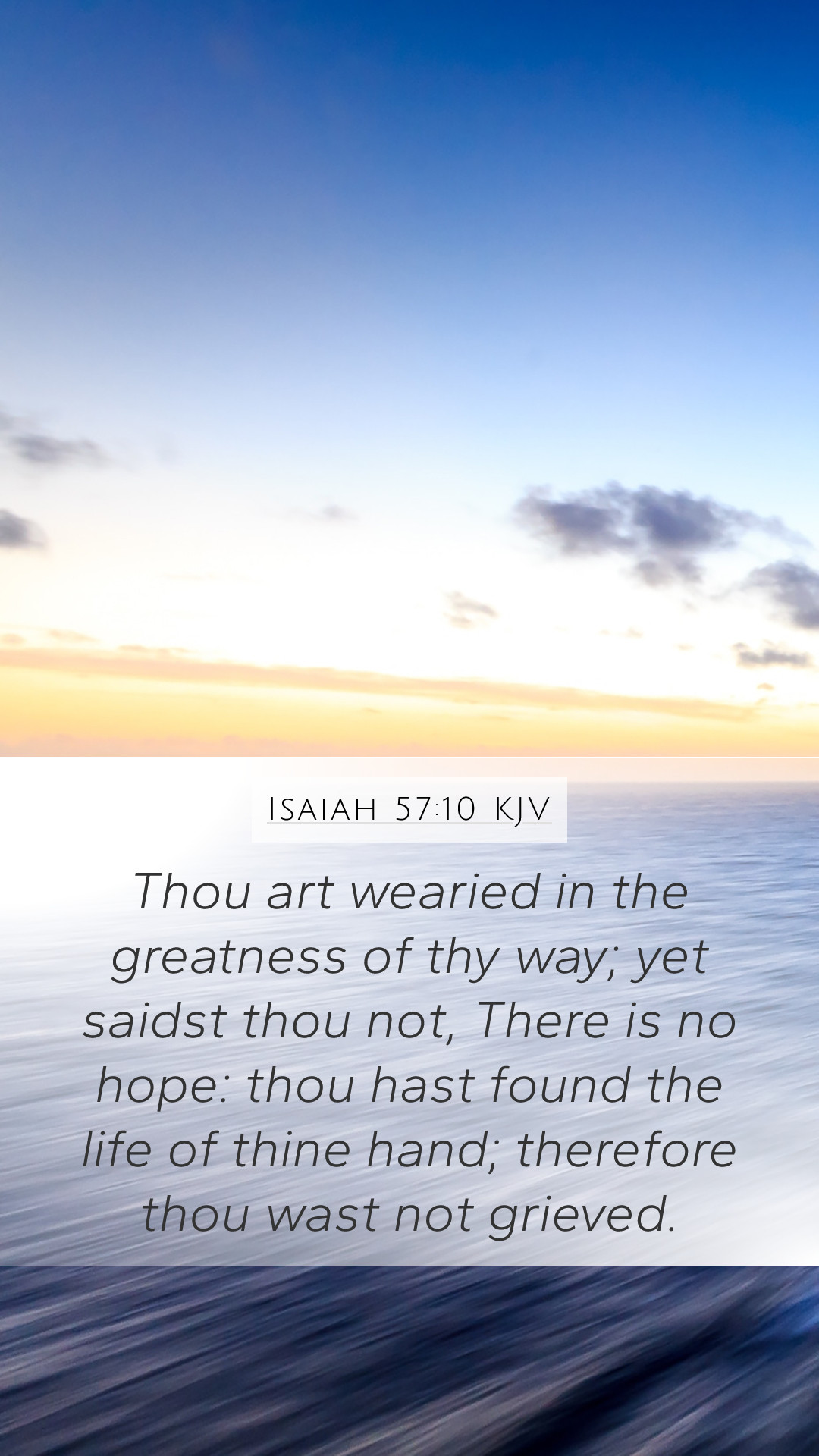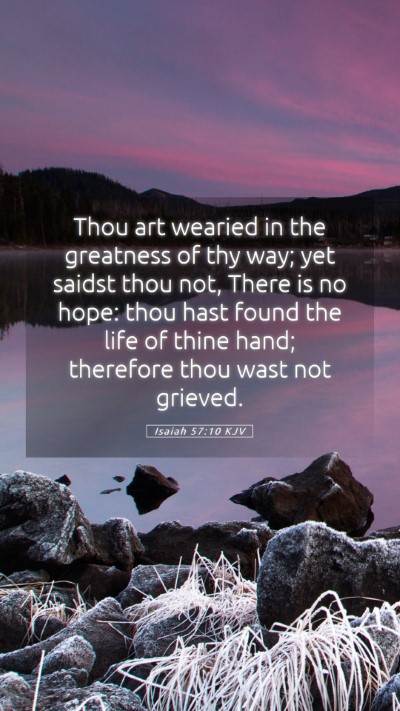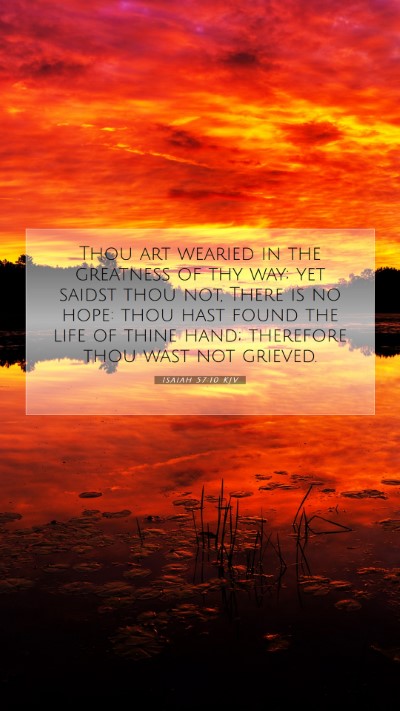Understanding Isaiah 57:10
Bible Verse: Isaiah 57:10
Verse Text: "Thou art wearied in the greatness of thy way; yet saidst thou not, There is no hope: thou hast found the life of thine hand; therefore thou wast not grieved."
Overview and Context
In this passage, the prophet Isaiah addresses the spiritual fatigue and misguided hopes of the Israelites. The verses give insights into their relentless pursuit of falsehoods, despite their acknowledgment of weariness. The emphasis here is on the failure to recognize the futility of their efforts in seeking peace and security apart from God. While the people of Israel were exhausted from their ways, they maintained an attitude of pride, thinking they had found success through their own strength.
Commentary Insights
Drawing from public domain commentaries, we can derive a multi-faceted understanding of this verse:
-
Matthew Henry's Commentary:
Henry highlights Israel's spiritual exhaustion, emphasizing that they had run in various ways, seeking life and hope, yet found none. The prophet illustrates the futility of relying on their own strength rather than turning back to God. Henry also notes that true hope is found in repentance and reliance on divine strength.
-
Albert Barnes' Commentary:
Barnes expands on the notion of 'wearied' in relation to the paths they chose and the idols they worshipped. He emphasizes the contrast between human effort and divine assistance, suggesting that the lack of grief shows a spiritual blindness. According to Barnes, this passage serves as a warning against those who pursue worldly desires without considering the spiritual implications.
-
Adam Clarke's Commentary:
Clarke discusses the metaphorical implications of weariness and effort, suggesting that the Israelites were caught in the cycle of sin and disobedience, yet refused to see their need for God’s grace. He points out that finding life merely in one's hand symbolizes a misguided dependence on self rather than on God, further reinforcing the need for humility and repentance.
Key Themes and Insights
-
Spiritual Weariness:
This verse powerfully illustrates the theme of spiritual exhaustion resulting from reliance on personal strength and earthly idols. Understanding this theme is vital for grasping the concept of seeking God in weariness.
-
Futility of Self-Reliance:
The passage warns against the futility of trying to find life apart from God. This is a significant lesson in recognizing that true hope and strength are found solely in faith and trust in God rather than in our efforts.
-
Call to Repentance:
Isaiah calls for a return to God, emphasizing that the acknowledgment of weariness should lead to a deeper recognition of the need for divine help. The lack of grief over their condition signifies spiritual complacency that must be addressed.
Application of Isaiah 57:10
This verse can serve as a profound reminder for contemporary readers about the importance of self-reflection and reliance on spiritual truths. It encourages a recognition of human limitations and the necessary turn towards God for renewal and strength.
For those engaging in Bible study groups or seeking online Bible study opportunities, examining the contrasts presented in this verse can enhance discussions around the themes of spiritual fatigue and the reliance on God.
Cross References
- Jeremiah 2:13 - Contradicting the forsaking of the fountain of living waters.
- Matthew 11:28-30 - Jesus inviting the weary to find rest in Him.
- Isaiah 40:30-31 - The promise of renewing strength for those who wait on the Lord.
Conclusion
In summary, understanding Isaiah 57:10 through the lens of established biblical commentaries enriches our comprehension of the struggles faced by the Israelites and the spiritual implications of their actions. This verse serves as a call to evaluate our reliance on God versus the weariness found in chasing after our own ways, illuminating deeper theological ideas for Bible study insights and further Scripture analysis.


